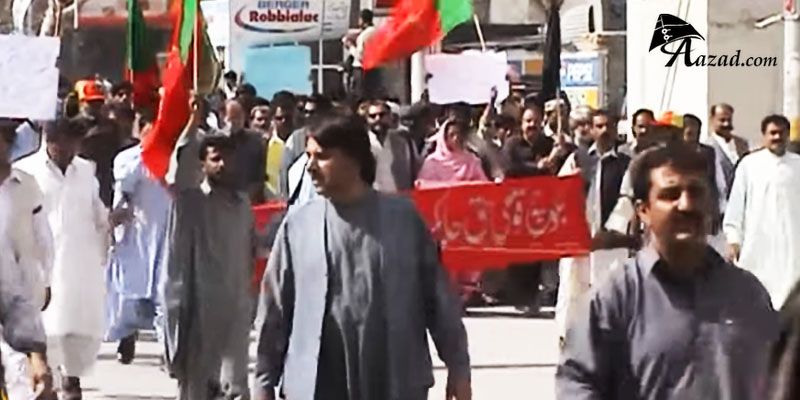- ●Breakthroughs in Prostate Cancer Treatment: What Every Patient Should Know
- ●Ovarian Cancer: The Silent Disease Women Cannot Ignore
- ●Children and Blood Cancer: Why Awareness is Crucial
- ●Women in Aviation India commences the celebration of 10th Girls in Aviation Day
- ●2025 Announcement, Appointment of New Board to Lead Hindustan National Glass & Industries Ltd
Human Rights Day: Pakistan's Atrocities In Balochistan

Human Rights Day is observed every year on 10 December. It commemorates the day on which, in 1948, the United Nations General Assembly adopted the Universal Declaration of Human Rights. In 1950, the Assembly passed resolution 423 (V), inviting all States and interested organizations to observe 10 December of each year as Human Rights Day. We take a look at Balochistan's freedom movement on this day.
The Pakistani state of Balochistan comprises of about 46% of Pakistan's land but Balochs are only 5% of Pakistan's total population. This makes them a minority in Pakistan. The total representation of Balochistan in National Assembly is only 17 out of 342. Thus Balochs have lost their voice in any legislations and are forced to live under the laws made for them by some Punjabis sitting in Islamabad. Balochistan has nothing in common with Pakistan, culture wise. Balochis mainly indentify themselves with the Central Asian cultures. Even food, festivals, language and traditions are different from that of the Punjabi dominated Pakistani culture.
Historically Balochistan was a free nation under supremacy of British crown. Founder of Pakistani state was a lawyer of the rulers of Balochistan. On 1947 Balochistan became independent from British. A stand still agreement was signed between Pakistan and Balochistan. But in 1948 Pakistan sent its army and annexed Balochistan by force. This is perceived as a betrayal by many. This has created resentment against Pakistan and its rulers among Balochs.
The state of Balochistan is rich with minerals and a major part of the gas in Pakistan comes from the Sui Gas Field near Sibi in Balochistan. This is why natural gas in Pakistan is called Sui Gas. Even though Balochistan supplies most of the gas to other parts of Pakistan, a few few houses in Balochistan have a gas connection. Most of the gas is supplied to the rich Punjab state of Pakistan.
The people of Balochistan have been extremely unhappy with Pakistan. Balochistan has the lowest road density in Pakistan, and no major rail connection (apart from Karachi–Quetta—Iran), even on the Makran coast, where there is little technical difficulity in installing the lines. The Pakistani military occassionally carries out operations in Balochistan to flush out people who protest. Protesting women are raped by Pakistani army, children abducted and murdered and so are the elders who raise their voice against the Pakistani establishment. The "Gone missing" stories are very common in Balochistan. Male members of families go missing and their bodies are found years later. This is Pakistan's plan to flush out the ethnic Baloch population and force the people from Punjab and other states to occupy land and inhabit Balochistan so that when a referendum is held, most people vote in favor of them as all Balochis are vehemently against the oppressive and exploiting ways of Pakistani establishment. Baloch’s don’t want their secular and tolerant culture to be corrupted further by the influence of fundamentalists from Pakistan. This also motivates them to want freedom from Pakistan.
Pakistan’s military occupation of Balochistan started in 1948. Since then there have been 5 waves of struggles. Most of these were brutally suppressed by Pakistani Military. This led to many human rights violations. Many international agencies have time and again reported about the gross mishandling of the human rights at the hands of Pakistani Military on the behest of government in Islamabad and Rawalpindi. But till now Pakistan has failed to resolve the matters democratically using political tools. Such level of inhuman treatment meted out on the citizens can be another reason why Balochs ask for freedom from Pakistan’s occupation. If Pakistan continues to neglect the dreams and aspirations of Balochs, it may not be able to avoid its impending Balkanisation.
 Balochistan\'s Feeedom Movement
Balochistan\'s Feeedom Movement




